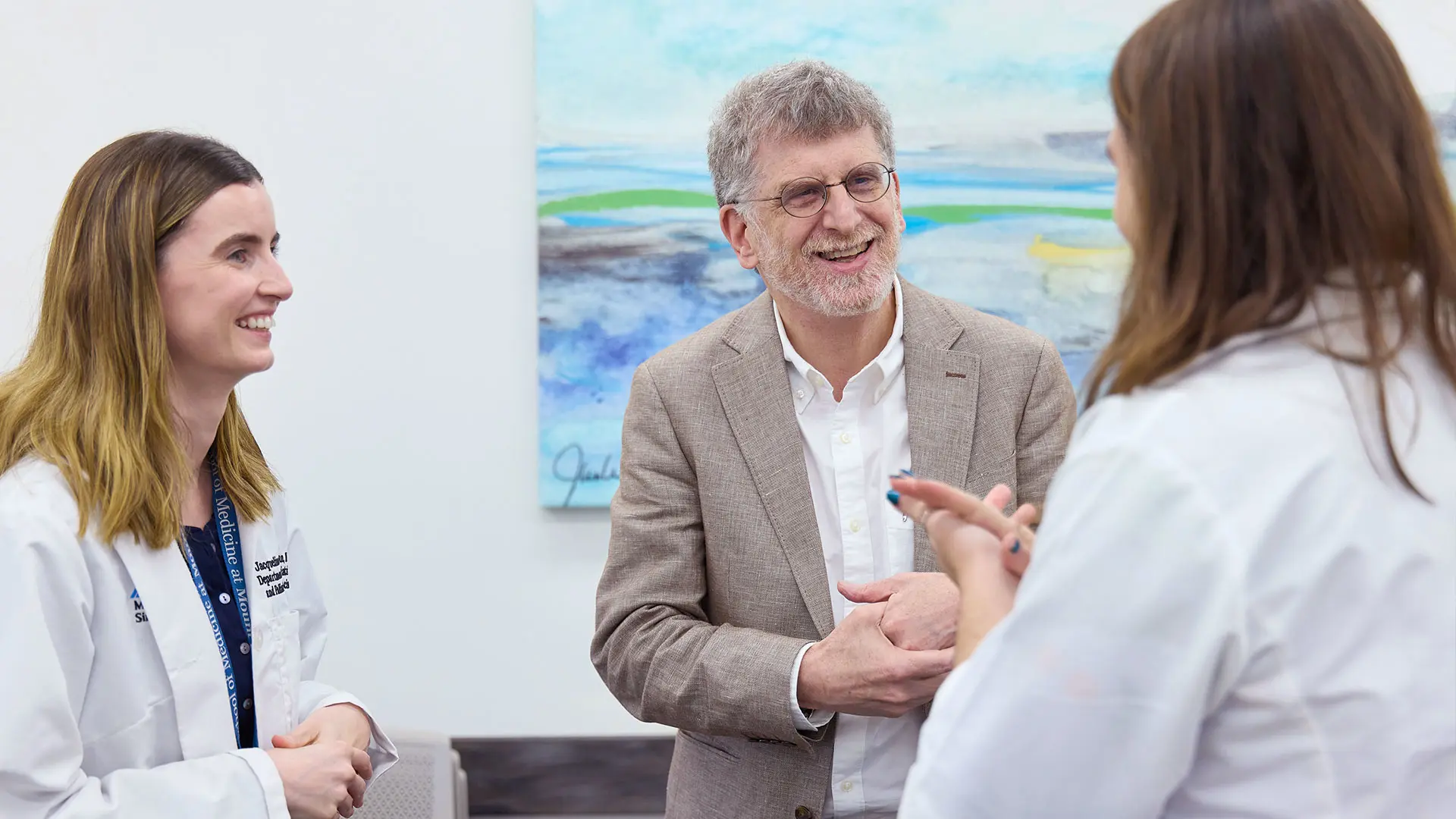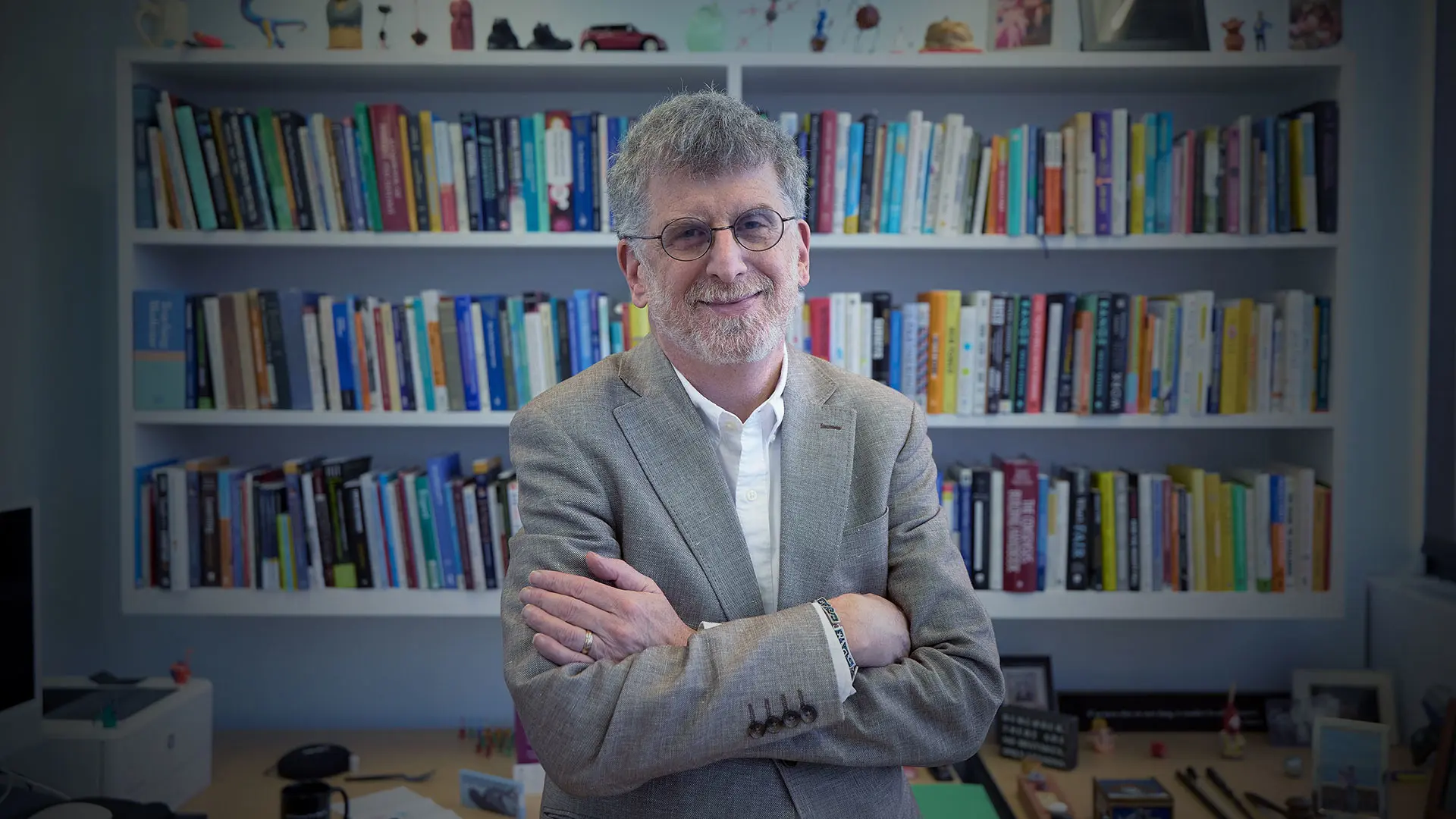In his new position within the largest graduate training program in the United States for geriatrics and palliative medicine, Robert M. Arnold, MD, is fully aware that the steps he takes as Vice Chair for Professional Development could reverberate well beyond the Brookdale Department of Geriatrics and Palliative Medicine at Mount Sinai. This lends even more weight to his overarching plan of training physicians to become “change agents” or role models for the rest of the medical field through their specialized skills and knowledge in treating the rapidly expanding population of older adult and seriously ill patients.
“Brookdale is an incubator for leaders in geriatrics and palliative medicine, and we want to provide them with an environment where they can reach their full potential and become extraordinary in their work,” says Dr. Arnold, who joined the Brookdale Department in May 2024 and is recognized as an international leader in the field. “We can have a tremendous impact nationally not only as specialists in our field, but as change agents for physicians in a host of other fields who go into the community to treat older and severely ill people.”

“Brookdale is an incubator for leaders in geriatrics and palliative medicine, and we want to provide them with an environment where they can reach their full potential and become extraordinary in their work,” says Robert M. Arnold, MD, Vice Chair for Professional Development, who joined the Brookdale Department in May 2024 and is recognized as an international leader in the field.
One area Dr. Arnold is particularly passionate about and has prioritized for growth is enhanced patient-clinician communications training. The linchpin for that effort is GeriTalk, a course that uses evidence-based methodologies to ensure that every patient and family is cared for by clinicians who can freely discuss what matters most to them, and can support them along the trajectory of their illness. Brookdale faculty have worked with other educators at Mount Sinai to bring similar programs to neonatology and oncology, and Dr. Arnold’s goal now is to extend those communication courses to intensivists, cardiologists, gynecologic oncologists, and nephrologists.
“There will never be enough geriatricians and palliative medicine clinicians to care for our aging population, so it’s critical that all clinicians who care for seriously ill patients are able to have difficult conversations with them,” says Dr. Arnold, who is also a Professor of Geriatrics and Palliative Medicine and serves as a palliative care attending physician. The expansion of GeriTalk will mean drawing on some of the same principles he incorporated into VitalTalk, the highly successful communication skills company he co-founded while at the University of Pittsburgh, where he served on the faculty for 30 years.
As Director of Professional Development at Brookdale, Dr. Arnold’s primary goal is to support the Department’s faculty—a mission he welcomes given the abundance of resources available to him.
“We already serve as a national model for leadership training, diversity, equity, and professional development,” he says. “My job is to build on that success by leveraging new opportunities to have an even larger footprint, both at Mount Sinai and nationally. As part of that drive, we’re developing, for example, writing groups to ensure that our faculty’s innovative work gets exposure in the best professional journals.”
Another innovative program at the Brookdale Department that Dr. Arnold believes is ready for expansion and could serve as a model nationwide is the Aging, Life Innovations, Goals, and Needs (ALIGN) Program, focused on meeting the special needs of the frailest sub-group of patients who are responsible for more than 50 percent of health care costs in the United States.
ALIGN, and a spin-off program known as ALIGN-CARE, are marshaling the expertise of core clinical teams comprised of a geriatrician, a nurse practitioner, and a social worker to support surgeons slated to operate on patients considered high-risk by targeting modifiable risk factors prior to their surgery. This extra layer of intra-professional care has been expanded beyond its initial cohort of kidney transplant patients to include vascular, urological, oncologic, and general surgeries.
As the ALIGN programs so vividly demonstrate, ensuring that clinicians across all disciplines are attuned to the special needs of older patients will require a paradigm shift in not just graduate level education but in the prevailing culture and attitudes around caring for society’s most vulnerable individuals. Significantly, Dr. Arnold sees the Brookdale Department as a leader in orchestrating that change.
“Five or ten years from now, my hope is that doctors just starting their careers in geriatrics and palliative medicine will feel supported through the modeling, mentoring, and training they’ve received at the Brookdale Department,” he asserts. “And, just as importantly, that they’ll work for fundamental change on a national scale because they’ve grown into the kind of clinicians and leaders they want to be.”
